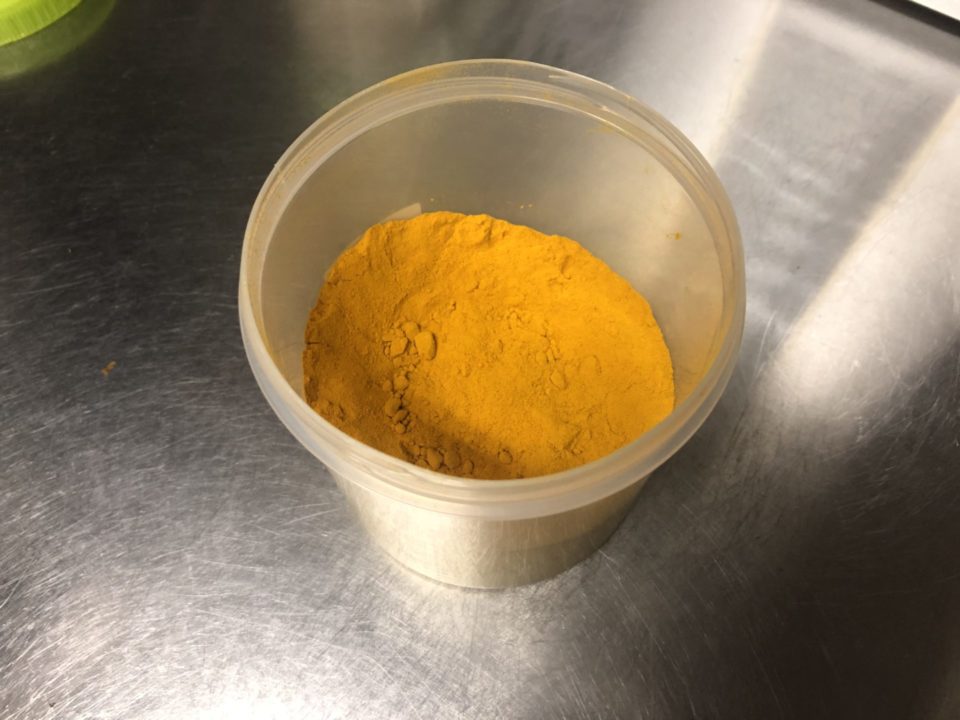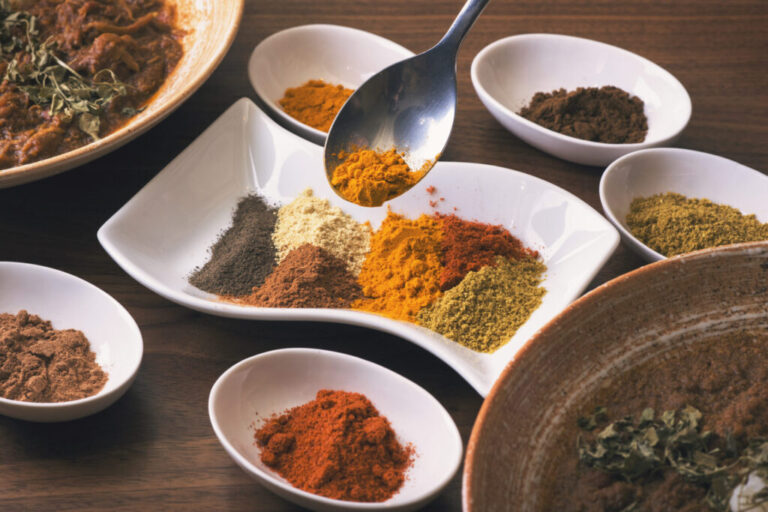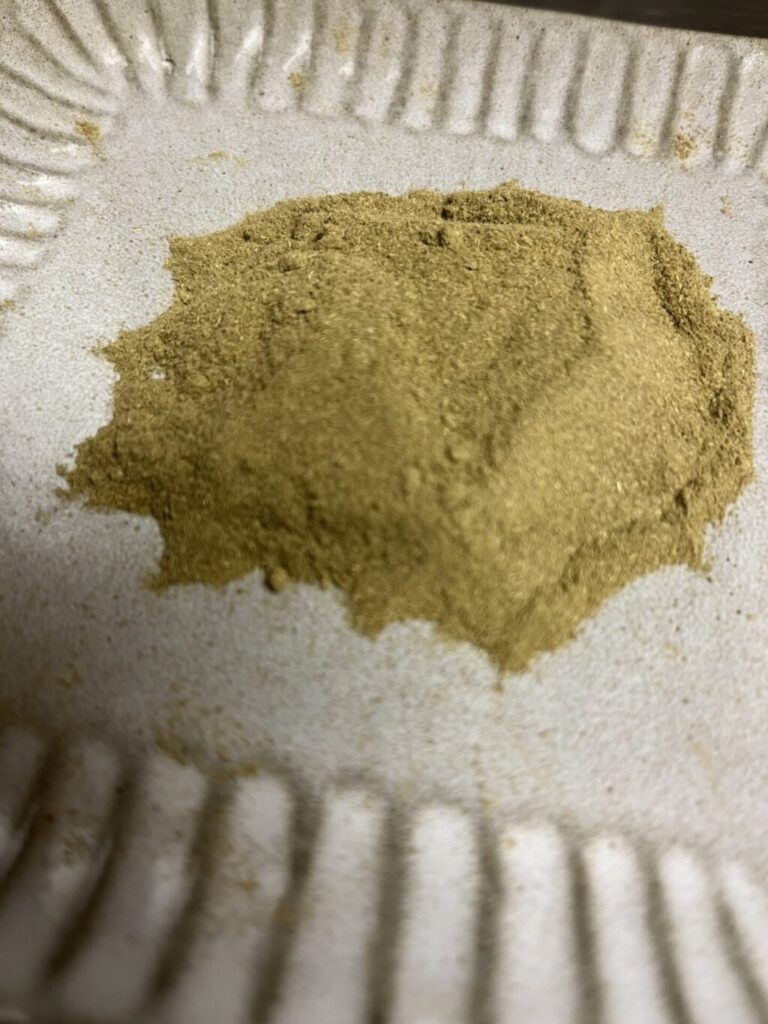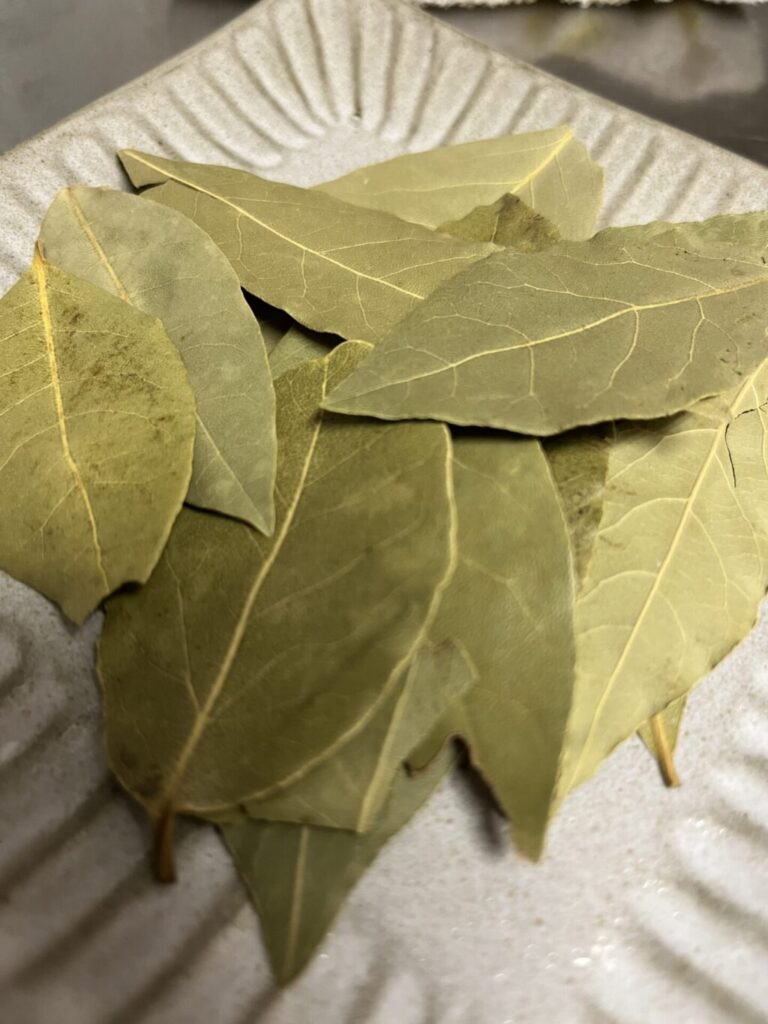目次
Toggleturmeric
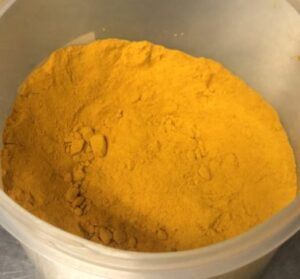 Fresh turmeric is crunchy, with a gingery citrus aroma and a pleasant earthy flavor. Dried turmeric has a floral citrus and ginger aroma mixed with a complex, dark woody flavor.
Fresh turmeric is crunchy, with a gingery citrus aroma and a pleasant earthy flavor. Dried turmeric has a floral citrus and ginger aroma mixed with a complex, dark woody flavor.
History of Turmeric
Turmeric is said to be native to Eastern India and has been cultivated since BC.
In India, it is used in Ayurveda as well as in cooking. It was also used as a herbal medicine in Siddha medicine, the oldest medicine in India. It is said to have been introduced to Japan from China to Ryukyu in the Muromachi period around the 16th century, when present-day Okinawa was still the Ryukyu Kingdom.
At that time, in Ryukyu, it was a valuable commodity used as a noble medicine, dye for kimono, and food coloring, and private cultivation was not permitted. Later, in 1609, the Ryukyu Dynasty came under the rule of the Satsuma Clan, and it spread throughout Japan as a dye and herbal medicine.
Today, turmeric is also grown in China, Thailand, and Indonesia, but India is the largest grower.
Annual production is said to be as high as 350,000 tons. In Japan, it is also produced in Kagoshima and Okinawa, with Okinawa being the largest producer in Japan.
Medicinal Effects of Turmeric
Turmeric has a variety of medicinal effects, some of which are introduced below.
(1) Improvement of liver function and bile secretion
In Japan, turmeric is probably a more familiar name, but it is also sold in drinks and supplements at convenience stores.
Many people take it before drinking alcohol. Turmeric is generally known to improve liver function and promote bile secretion.
The liver is an organ that plays a very important role.
It is especially known for its ability to break down alcohol. It is also known as the “silent organ,” meaning that even in the event of damage, it is difficult for symptoms to appear.
By the time symptoms appear, the disease is often very severe. Bile is an alkaline liquid produced in the liver.
It helps in the digestion and absorption of food. It is believed that intake of turmeric promotes the secretion of bile, which enhances the detoxification of the liver, resulting in improved liver function.
(2) Appetite-stimulating effect
Turmeric is also said to increase appetite by stimulating the stomach. It is also said to increase gastric juice secretion and protect gastric mucosa.
(iii) Effect on improving blood flow
Because of its antioxidant properties, turmeric prevents oxidation of bad (LDL) cholesterol in the blood, lowering cholesterol levels and improving blood flow.
4) Brain function activation
Curcumin” contained in turmeric is expected to help keep the brain healthy.
One of the dishes using turmeric as a spice is “curry. A recent study using curry reported that eating curry activated a part of the brain and raised IQ by “7. Some subjects were tested after consuming curry and a control meal, respectively, and reported that their brains were activated and they were able to solve more tasks on the exam.
Other recent studies have shown that curcumin prevents the buildup of proteins that cause various diseases and may also help prevent Alzheimer’s disease.
It has many amazing effects, but in fact, it seems that it is difficult to seek the expected effects just by taking it as a food. Curcumin, which has been mentioned earlier, is the result of a concentrated product. Therefore, we recommend that you take it patiently and continuously, including supplements and drinks.
How to cook and store turmeric, etc.
Turmeric plays a balancing role with other spices and is used in a variety of spice mixes. In Southeast Asia, fresh turmeric is used. It can be chopped finely for cooking or grated and used in laksa, stews, vegetable dishes, etc.
During Indonesian and Malaysian celebrations, the extracted juice is used to add flavor and color to rice.
In India, it is combined with other spices to make masala or curry powder, which adds warmth and color to vegetable and bean dishes.
In the West, it is used as a dye for cheese, margarine, and mustard.
Fresh turmeric can be stored in the vegetable compartment for up to two weeks or frozen. Dried turmeric can be stored in an airtight container for 2 years or more.
The best quality of powdered turmeric is considered to be from Alleppey or Madras, according to a popular theory. The powder will keep its aroma in an airtight container for up to one year.
Finally.
Turmeric introduced in this article. How was it?
Turmeric has been valued as a dye and medicine since ancient times.
Today, it is used not only as a food, but also in ceremonies such as weddings and funerals that are rich in regional characteristics. It is also one of the least expensive spices, so if you are interested, please give it a try.
In the next issue, we will introduce green cardamom, the queen of spices. Please look forward to it.



